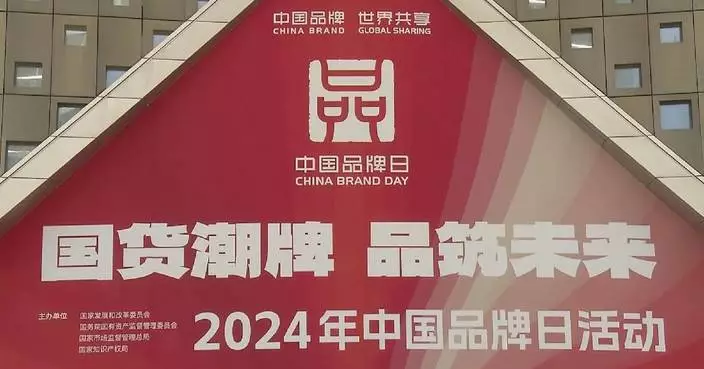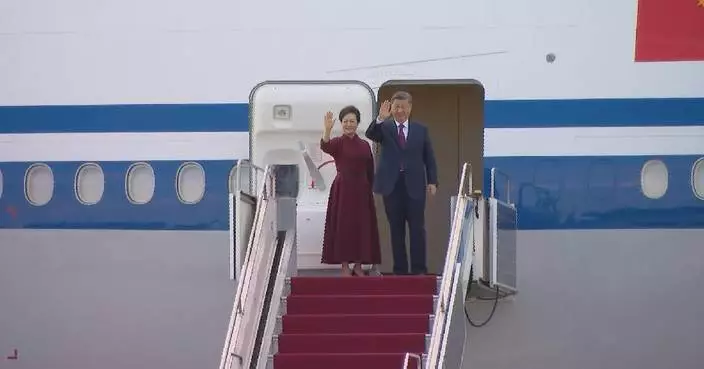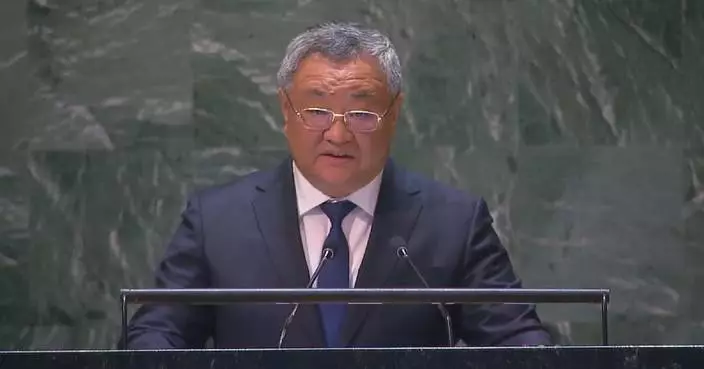Chinese automakers are at the forefront of developing intelligent driving vehicles, creating lucrative business opportunities for international auto technology suppliers, said Elie Luskin, vice president of Mobileye, a Nasdaq-listed Israeli company specializing in self-driving technologies and advanced driver-assistance systems.
China has clearly set its sights on becoming a key player in autonomous driving technology, with many global auto technology suppliers now turning to China partners to help them get ahead in new automotive technologies, Luskin told CGTN during an interview on the sidelines of the 2024 Beijing International Automotive Exhibition.
"The automotive industry in China has grown significantly in the past six years that I've been here, from no intelligent driving whatsoever to leading globally in intelligent driving. Together we built with the Chinese industry our testing center in Jiading (a district in Shanghai) and also the Beijing R and D Center. We have hired the best engineers, best engineers available today, we have a great team and together we have localized. So, Mobileye today is localized in China. All of our technology, the R and D, everything is done locally, allowing us to cater the latest and greatest technologies and products to our Chinese partners," he said.
China's auto sales hit 30.094 million units while output reached 30.161 million units in 2023, surpassing the 30 million mark for the first time, according to China Association of Automobile Manufacturers (CAAM).
On top of the market size, Luskin said the innovation boom and opportunities arising from joint ventures also make China an attractive destination for auto tech suppliers like Mobileye.
"First of all is the sheer size. It's the largest automotive market in the world, but most important, the Chinese automakers are first to adopt new technologies. So, we've seen intelligence exploding in China. Another point is the local joint ventures. So, they also need to localize, and they have several partners that they can choose from, and Mobileye is positioned very well to partner with these local JVs (joint ventures), because they work with us globally. They see a company that is already localized with urban navigate-on-pilot on the road, and we are also one of the first partners they choose when they look for a local supplier," he said.
Luskin said the experience and data collected in China will "continue to" benefit their research and development globally.
"So, the supervision system, which is our most advanced solution, was basically made in China with Geely. I believe many future most-advanced technologies will be first launched in China with Mobileye, and my responsibility is to make sure that we're well equipped, well localized to enable it," he said.
A crucial requirement for widespread adoption of autonomous driving vehicles is their adeptness and safety navigating in urban environments. Mr. Luskin invited a CGTN reporter to experience her first urban navigation-on-pilot drive in the streets of the nation's capital. So far, around 200,000 vehicles in China are equipped with such driver supervision systems.
Luskin said Mobileye's business in China made up around 30 percent of its global revenue in 2023.
"China market is extremely important and the impact on the global auto market is going to change the way we view automotive in the future. Mobileye is well positioned in China and will keep investing in China in order to ensure that we succeed in China and therefore succeed globally," he said.
The 2024 Beijing International Automotive Exhibition kicked off in Beijing on Thursday and will last until May 4.

Mobileye sees China as most crucial market for auto tech suppliers









